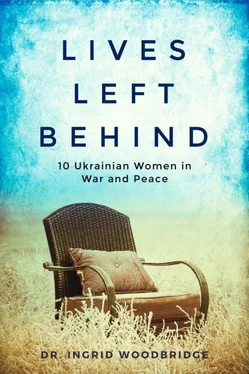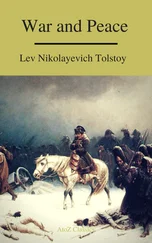In L’viv, Veronika and her family are part of the church plant Disciples Church, and once again, Elisey Pronin is her pastor. Her parents are also in the church, as well as her younger brother and her sister. Veronika doesn’t make long term plans, she admitted, because life changes so much and is so unpredictable. She does not really know how to plan anything anymore. She has dreams for the future, but she focuses on creating stability for her children who have experienced so many changes. She trusts God to fulfill His plan in her life; she walks with Him daily, living by faith, not by sight. Benjamin will need to start school before long. She says she doesn’t know if they will have to move again. For now, they are glad to raise their boys here in L’viv.
Marina was born in 1982 in Crimea. Her family originated from different parts of Ukraine. Her father grew up in Kherson; her grandparents came from Ivanov Frankivsk and moved to Crimea for work. Marina has one older brother Alexey. Growing up, Marina lived with her grandparents for long periods of time, because her mom was sick. Her grandma became like a mom to her, Marina said. Her grandparents had a lot of animals. Marina went to Kindergarten at an early age. She started first grade in Simferopol, living with her parents again during the school year. But the summer months were spent with Grandma. It was a wonderful time.
Her family celebrated holidays like any traditional Ukrainian family would. Her parents were not religious and would rarely go to the Orthodox church. Marina reflected that, growing up, she thought anything related to church and God was boring. Marina described her family as a typical atheistic family of the Soviet Union. Even though her family was not religious, Marina remembered that they had religious icons at home. Many Ukrainian family had these in their houses. Marina asked her grandma a little bit about God, and her grandma answered, “What you cannot see, does not exist.” Marina grew up without any knowledge of God or God’s word.
Marina did not like school; it was simply not interesting. She finished her high school exams but could not see herself entering the university. She took a few vocational classes, learned to be a hair dresser, especially for children, and worked after high school.
When Marina was nineteen years old, a neighbor started talking to her about God and invited her to church. She began going with her neighbor; God was clearly working in her heart. Marina had many questions about God and wanted to understand the Bible. She prayed and asked God to open her heart. As she began reading God’s word, she began to understand more about God. After a month of attending church and studying the Scripture, Marina repented of her sins and became a Christian. Initially her family did not like that she was going to church. They were worried that she was involved in a cult! But her parents also saw how positively Marina’s life had changed. She tried to witness to her parents, continued reading the Bible, and started to serve in the church. She also sang in the youth choir.
Her future husband, Dima, had moved to Crimea with his mother as a young college graduate. He grew up in Donetsk and had already finished a degree at Donetsk Christian University. His mother moved to Crimea to start a business; unfortunately, this enterprise failed. His mother returned to Donetsk, but Dima decided to stay in Crimea – for two reasons. First, Dima attended a church in Simferopol and enjoyed the many young people there. And second, he met Marina in 2003 at Central Baptist Church – and he was smitten. Marina liked Dima; he was tall and friendly, was easy-going and a leader; he was very likable. After dating for only one month, Dima proposed marriage.
For Marina, 2004 was an important year . She was baptized and she married Dima. Marina was 21 years old. She and Dima began attending a smaller church together where Dima served in the music ministry. This was a church plant from the mother church. Dima worked as a music teacher and served in the local church. Marina would set up cookies and tea to encourage people to fellowship after the service, share prayer requests, share life. She also worked in the church’s summer camps, serving in the kitchen, cooking for the campers. She organized a small group for women in her home for fellowship, sharing life together and praying together. Women often shared how the fellowship with other believing women was changing their lives.
Marina and Dima soon started a family and had three sons in the space of six years. Her sons are: Sviatoslav, meaning the glory of God; Elisey, the biblical name Elisha; and Elijah, meaning the strength of God. And daughter Emma was born in L’viv in 2018; her name reminds Marina of Emmanuel, God is with us. Dima named the three boys, but it was Marina’s privilege to name her daughter.
Marina was busy as a mom, homemaker, and church volunteer. The boys started elementary school in Crimea. Dima would go to work and Marina would manage the household and serve through ministries of her church. Life was good; no one anticipated any trouble. Several times a year, the family would travel to Donetsk to see family members and spend a month of summer vacation with relatives. The children would see their other grandma. Dima’s parents were divorced; the kids didn’t see their grandpa too often. Dima’s mom also loved to travel to Crimea, see her grandchildren, and enjoy the mild climate of the most southern region of Ukraine. Many other relatives would come to visit Marina’s family, as well, simply because Crimea was such a lovely place for a vacation at the sea. Marina said that they really had a lot of guests, but they had only a small apartment. How they managed the sleeping arrangements was classic Ukrainian style; people slept on the floor, more or less on top of each other. After all, free room and board is free room and board.
Life for Marina and her family changed drastically in 2014. Marina recalled the events with trepidation. Mysterious “green men” appeared in the streets, dressed in army uniforms, but without a country symbol to identify them. All across the city of Simferopol, war machinery and technical military supplies began to arrive. Dima had many friends who played basketball together. They noticed many soldiers, hanging out near the basketball courts. Marina explained that the city was not very large, but they saw soldiers everywhere, on every corner, and even close to their home. Soldiers were patrolling every street. Tanks and heavy armory drove into the city. The political situation in Crimea became frightening to her, Marina said.
At a local market square very near their home, soldiers rounded up people. The arrests were frightening to Marina. Dima was at work. Calling around, he talked with his friends about what to do. They all expected the situation would get worse. No one really knew what to do. Marina and Dima called some journalist friends of theirs, but they did not have any more information; everything was just happening in real time. Marina remembered that they had internet and cell phone services and were watching the events unfold on social media and their internet news agencies. It was simply horrible. Marina said they did not know how long to wait or what would happen next. In her fear, she decided to pick up her sons from school and take them home. She arrived at the elementary school and was told by the teachers that there was no reason to worry. She took the boys home anyway; she was worried.
It became very apparent that many mercenaries were serving among the “green men”. People from other countries came to the city and did not know their way around town. They were definitely not local people, Marina said. It became more oppressive every day. Even going to karate lessons for one son became an ordeal. Then the so-called referendum took place in May 2014 to choose a new government for Crimea. The referendum was characterized by a show of force and a reaction of fear. People were afraid to do anything that would cause the authorities to notice them. Allegedly, 95.5% of the people voted for the new Russian government.
Читать дальше












